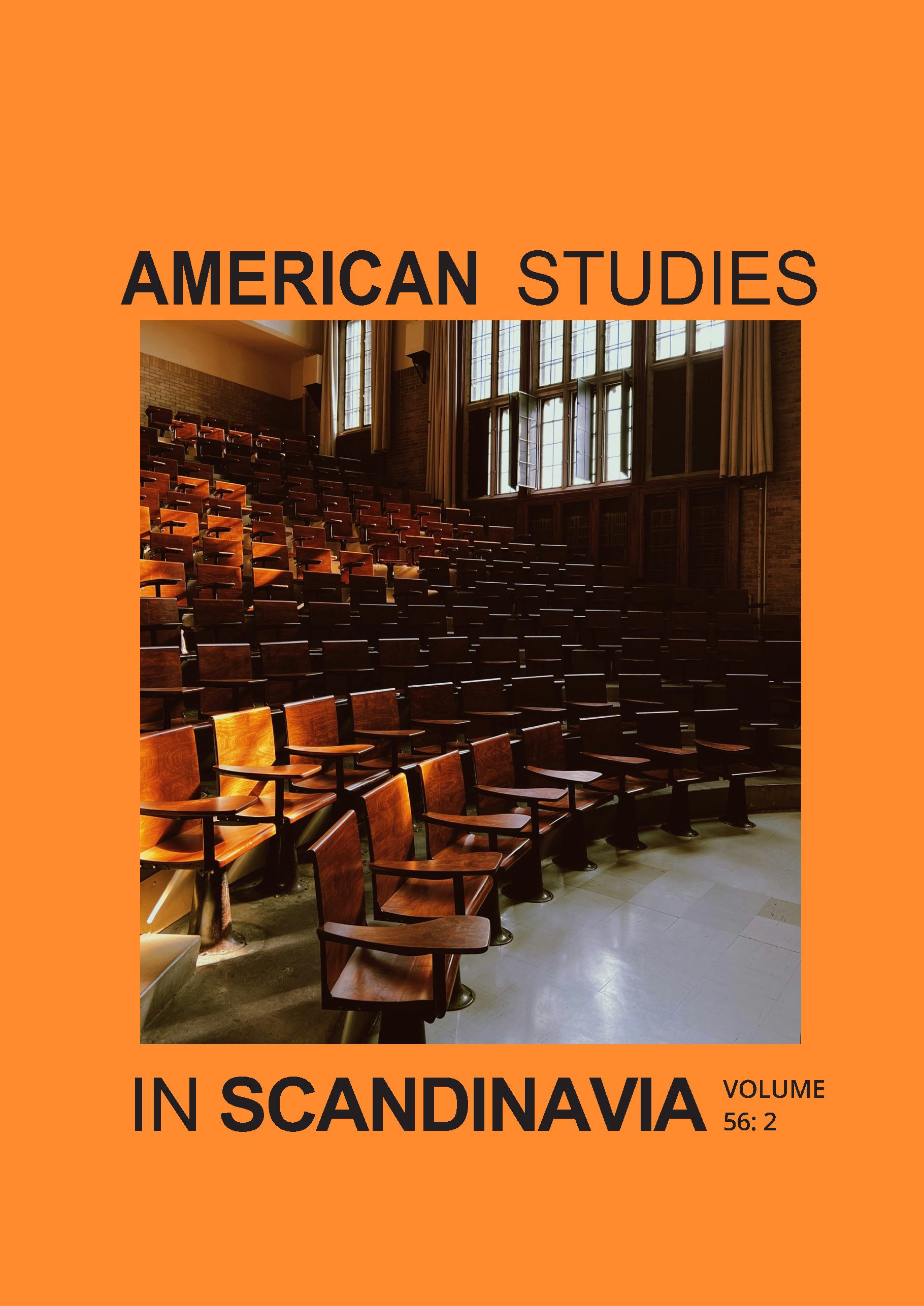Teaching American Studies within Intellectual History (idéhistoria)
DOI:
https://doi.org/10.22439/asca.v56i2.7377Keywords:
contextualism, linguistic and cultural translation, area studies, Marshall McLuhan, W. E. B. Du BoisAbstract
This article reflects on the author’s experience of creating and teaching a set of courses with North American themes within the academic discipline of idéhistoria, intellectual history, at a Swedish university. It stresses the value of an area studies approach for training students in “a researcher’s way to see and work” within this discipline. The more courses with themes from the US (and Canada) become “American studies,” the better they contribute to prepare students to think about past thought in a way that defines the task of idéhistoria (in the author’s opinion), namely a strictly contextualist approach. The article offers some examples of this. The fact that much about the US is familiar to Swedish students creates opportunities to understand past thought historically by exploring contexts that gradually make apparently familiar things less familiar, thus allowing them to be understood in unfamiliar ways. The courses have also become exercises in linguistic and cultural translation from American English, as a language that is fairly familiar to most Swedish students becomes more complex in their perception, with meanings and bearings shifting in time and space.
References
Andersson, Nils, and Henrik Björck, eds. Idéhistoria i tiden: Perspektiv på ämnets identitet under sjuttiofem år. Brutus Östlings Bokförlag 2008.
Blanck, Dag, and Adam Hjorthén, eds. Swedish-American Borderlands: New Histories of Transatlantic Relations. University of Minne-sota Press, 2021.
https://doi.org/10.5749/j.ctv1v3gr1q.
Blaustein, George. Nightmare Envy and Other Stories: American Culture and European Re-construction. Oxford University Press 2018.
Du Bois, W. E. B. The Souls of Black Folk. Norton Critical Edition. Henry Louis Gates Jr. and Terri Hume Oliver, eds. W.W. Norton 1999.
Fox, Richard Wightman, and James T. Kloppen-berg, eds. A Companion to American Thought. Blackwell Publishers, 1995.
Hannah-Jones, Nikole, Caitlin Roper, Ilena Sil-verman, and Jake Silverstein, eds. The 1619 Project: A New American Origin Story. WH Al-len, 2021.
Higham, John. “The Rise of American Intellectu-al History.” The American Historical Review 56, no. 3 (1951): 453–71.
https://doi.org/10.2307/1848432.
Isaac, Joel, James T. Kloppenberg, Michael O’Brien, and Jennifer Ratner-Rosenhagen. The Worlds of American Intellectual History. Oxford University Press 2017.
Locke, Alain L. Race Contacts and Interracial Re-lations: Lectures on the Theory and Practice of Race. Edited by Jeffrey C. Stewart. Howard University Press, [1916] 1992.
Lovejoy, Arthur. The Great Chain of Being: A Study of the History of an Idea. Harvard Uni-versity Press, 1964.
https://doi.org/10.4159/9780674040335.
McLuhan, Marshall. “Canada, the Borderline Case.” In Understanding Me: Lectures and In-terviews, edited by Stephanie McLuhan and David Staines, 105–23. The MIT Press, [1967] 2005.
Östlund, David. “Ett manifest för processtolkande idéhistoria: 100 teser om tänkandet och dess historieskrivning.” Lychnos, 1998.
Östlund, David. “Fleck As a Theorist of Thought As Res Gestae: Or, Does a Pair of Dots in Swedish Matter?”. Transversal: International Journal for the Historiography of Science 1 (December 2016).
https://doi.org/10.24117/2526-2270.2016.i1.04.
Östlund, David. “Tillbaka till framtiden? Teknik, kommunikation och förnuft i teveåldern.” In Tillsammans: Politik, filosofi och estetik på 1960- och 1970-talen, edited by Anders Burman and Lena Lennerhed. Bokförlaget Atlas, 2014.
The President’s 1776 Advisory Commission. The 1776 Report. The White House (January 2021).
Downloads
Published
How to Cite
Issue
Section
License

This work is licensed under a Creative Commons Attribution-NonCommercial-NoDerivatives 4.0 International License.



